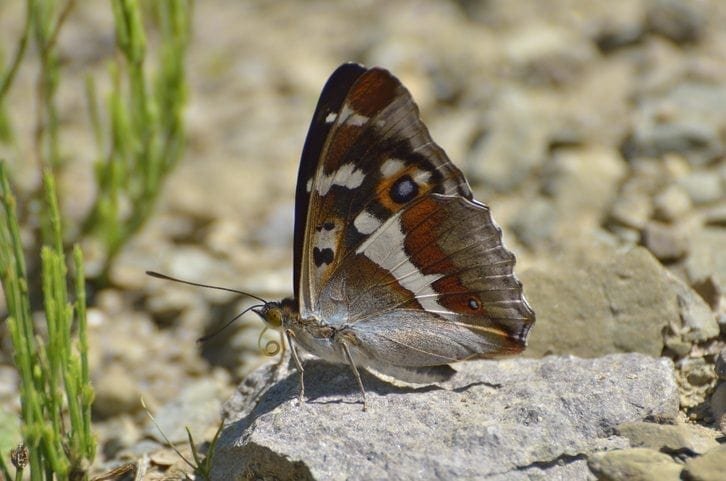Traditional British seasons were plunged into chaos in 2017 as one of the hottest years on record sparked a ‘freak’ year for Nature, the National Trust’s annual wildlife and weather review reveals.
Spring flowers blooming in autumn, unprecedented numbers of hawfinch and an invasion of the unnerving Portuguese Man O’ War are among peculiar findings in the review for 2017.
The Trust said its ambitious plans to reverse alarming declines in UK wildlife are more urgent than ever amid changing climates and rising temperatures.
Winter
For once, winter stayed within its usual parameters, although there were few extended periods of cold or frost. The mild start to the year – combined with a damp summer – contributed to rampant vegetation growth across the country.
This recurring trend – one of the main expressions of climate change – can be damaging for small annual plants, many insects and reptiles.
The dry and mild winter also caused a low spawn count among some amphibians. At Sandscale Haws in Cumbria, rangers reported low numbers of natterjack toads, attributed to a lack of suitable breeding pools.
Spring
The premature spring weather prompted many flowers to arrive earlier than usual. Wild daffodils appeared in the Teign Valley in February while elder and dog rose, which usually flower in June, were blooming by April.
Both continued to experience an odd year, flowering into the autumn months at sites from Cornwall to Dorking. Unfortunately, 2017 wasn’t great for orchids, which had done well in recent years.
Balmy weather in May led to a good nesting season for birds – the little tern doing well at Blakeney Point in Norfolk – and a positive flight period for insects. The heather colletes bee thrived on the Purbeck heaths in Dorset, while the elusive purple emperor, the UK’s second-largest butterfly, was spotted at Bookham Common, Surrey on June 11 – its earliest appearance for over 120 years.
A colony of emperors was also discovered at the Trust’s Sheringham Park – they haven’t been seen in Norfolk for 40 years.
Summer
There were other instances of warmer temperatures encouraging species to colonise new areas. In the summer, the rare willow emerald damselfly was discovered by Trust volunteers along the Royal Military Canal in Kent, while Atlantic bluefin tuna have been drawn back to UK waters.
Previously common on our shores, the bluefin, recently spotted off Watch Point in Cornwall, vanished in the 1950s after the herring and mackerel they eat was overfished. Now, rising sea temperatures have brought back their food source, and the bluefin has followed.
Warmer waters have also caused squid and anchovies to return to UK seas, and are cited as a reason why several minke whales were found dead off the Suffolk coast.
Overall, it was a good year for bumblebees, with record numbers reported on parts of the Lytes Cary Manor estate in Somerset. Wasps endured mixed fortunes and, despite the warm spring, continue to be scarce in many places.
For a time, it looked like the best summer for a decade was on the cards. Then the schools broke up, the clouds assembled and the UK endured one of the wettest August’s on record. This killed off many winged creatures, though it benefited farmers with livestock as grasses grew rapidly once more.
 Play Video about This Rock Might Just Save The World
Play Video about This Rock Might Just Save The World Play Video about Play 2 hours of rock
Play Video about Play 2 hours of rock Play Video about Play 2 hours of brook
Play Video about Play 2 hours of brook Play Video about Play 2 hours of sheep
Play Video about Play 2 hours of sheep











































